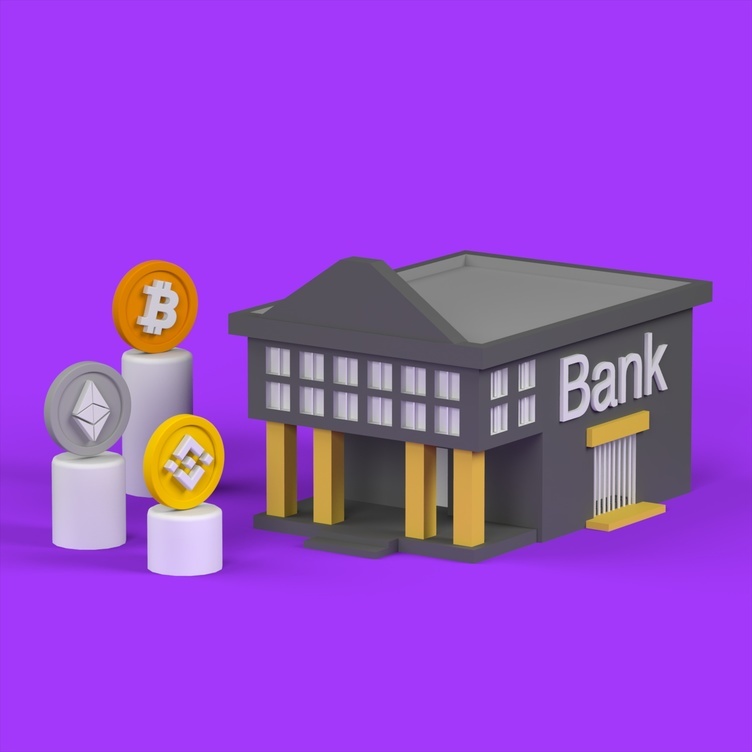Centralized Vs. Decentralized Crypto Exchanges

A centralized crypto exchange (CEX) is an online platform that allows users to buy, sell, and trade cryptocurrencies. CEXs are operated by a central authority, which is responsible for holding users’ funds and facilitating transactions.
CEXs offer a number of advantages over decentralized exchanges (DEXs)
- Ease of use: CEXs are typically easier to use than DEXs, and they offer a variety of features that make it easy to trade cryptocurrencies, such as fiat on-ramps and off-ramps, charting tools, and stop-loss orders.
- Liquidity: CEXs typically have more liquidity than DEXs, which means that there are more buyers and sellers for each cryptocurrency. This makes it easier to execute trades at the desired price.
- Security: CEXs typically have more robust security measures in place than DEXs, such as cold storage and multi-signature wallets. This helps to protect users’ funds from theft and hacking.
CEXs also come with some disadvantages
- Counterparty risk: CEXs are centralized entities, which means that users must trust the exchange to hold their funds and facilitate transactions. If the exchange is hacked or goes bankrupt, users could lose their funds.
- KYC/AML requirements: Most CEXs require users to undergo a Know Your Customer (KYC) and Anti-Money Laundering (AML) process before they can start trading. This process involves providing the exchange with personal information, such as name, address, and date of birth.
- Fees: CEXs typically charge fees for trading and other services. These fees can vary from exchange to exchange, but they can be significant for high-volume traders.
Overall, CEXs offer a good balance of convenience, liquidity, and security for cryptocurrency traders. However, users should be aware of the counterparty risk involved in using any centralized exchange.
popular centralized crypto exchanges
- Binance
- Coinbase
- Kraken
- KuCoin
- Gemini
- Bitfinex
- Bitstamp
- Bybit
- FTX
- Huobi Global
- Gate.io
When choosing a CEX, it is important to consider factors such as liquidity, security, fees, and supported cryptocurrencies. It is also important to read reviews and compare different exchanges before making a decision.
Key features of a centralized crypto exchange
A centralized crypto exchange (CEX) is an online platform that allows users to buy, sell, and trade cryptocurrencies. CEXs are operated by a central authority, which is responsible for holding users’ funds and facilitating transactions.
CEXs offer a number of advantages over decentralized exchanges (DEXs), including:
- Ease of use: CEXs are typically easier to use than DEXs, and they offer a variety of features that make it easy to trade cryptocurrencies, such as fiat on-ramps and off-ramps, charting tools, and stop-loss orders.
- Liquidity: CEXs typically have more liquidity than DEXs, which means that there are more buyers and sellers for each cryptocurrency. This makes it easier to execute trades at the desired price.
- Security: CEXs typically have more robust security measures in place than DEXs, such as cold storage and multi-signature wallets. This helps to protect users’ funds from theft and hacking.
However, CEXs also come with some disadvantages:
- Counterparty risk: CEXs are centralized entities, which means that users must trust the exchange to hold their funds and facilitate transactions. If the exchange is hacked or goes bankrupt, users could lose their funds.
- KYC/AML requirements: Most CEXs require users to undergo a Know Your Customer (KYC) and Anti-Money Laundering (AML) process before they can start trading. This process involves providing the exchange with personal information, such as name, address, and date of birth.
- Fees: CEXs typically charge fees for trading and other services. These fees can vary from exchange to exchange, but they can be significant for high-volume traders.
Overall, CEXs offer a good balance of convenience, liquidity, and security for cryptocurrency traders. However, users should be aware of the counterparty risk involved in using any centralized exchange.
Most popular centralized crypto exchanges
- Binance
- Coinbase
- Kraken
- KuCoin
- Gemini
- Bitfinex
- Bitstamp
- Bybit
- FTX
- Huobi Global
- Gate.io
When choosing a CEX, it is important to consider factors such as liquidity, security, fees, and supported cryptocurrencies. It is also important to read reviews and compare different exchanges before making a decision.
What is a decentralized crypto exchange?
A decentralized crypto exchange (DEX) is a peer-to-peer marketplace where users can buy, sell, and trade cryptocurrencies without a centralized intermediary. Instead of relying on a trusted third party to hold users’ funds and facilitate trades, DEXs use smart contracts to execute trades directly on the blockchain.
This decentralized approach has a number of advantages over centralized exchanges (CEXs), including:
- Increased security: DEXs are more resistant to hacks and fraud, as users never have to give up custody of their funds.
- Greater transparency: DEXs are typically open source, meaning that anyone can audit the code and verify that it is working as intended.
- More democratization: DEXs are accessible to anyone, regardless of their location or jurisdiction.
However, DEXs also have some disadvantages, such as:
- Lower liquidity: DEXs generally have lower trading volumes than CEXs, which can make it difficult to execute large trades.
- Higher fees: DEX transactions often incur higher gas fees than CEX trades.
- More complex to use: DEXs can be more difficult to use than CEXs, especially for beginners.
Overall, DEXs offer a number of advantages over CEXs, but they are still a relatively new and developing technology. As DEXs evolve and become more user-friendly, they are likely to play an increasingly important role in the cryptocurrency ecosystem.
Here are some examples of popular DEXs
- Uniswap
- SushiSwap
- PancakeSwap
- Curve Finance
- dYdX
- 1inch
If you are interested in using a DEX, it is important to do your research and choose a reputable platform. You should also be aware of the risks involved, such as high gas fees and the potential for scams.
Centralized vs. Decentralized exchanges
Centralized and decentralized exchanges are both platforms that allow users to trade cryptocurrencies. However, they work in very different ways.
Centralized exchanges (CEXs) are run by a single company or organization. Users must deposit their cryptocurrencies into the exchange’s wallets in order to trade. The exchange then acts as an intermediary, matching buyers and sellers and processing transactions.
Decentralized exchanges (DEXs) are not controlled by any single entity. Instead, they use smart contracts to facilitate trades directly between users. This means that users never have to give up custody of their cryptocurrencies.
Here is a table that summarizes the key differences between centralized and decentralized exchanges:
| Feature | Centralized exchange | Decentralized exchange |
|---|---|---|
| Control | Users deposit their cryptocurrencies into the exchange’s wallets. | Users maintain custody of their cryptocurrencies at all times. |
| Security | CEXs are vulnerable to hacks and other security breaches. | DEXs are generally more secure, as they do not store user funds. |
| Liquidity | CEXs typically have higher liquidity than DEXs, meaning there are more buyers and sellers for each cryptocurrency. | DEXs are still developing, and liquidity can be an issue for some less popular cryptocurrencies. |
| Ease of use | CEXs are generally easier to use than DEXs. They offer user-friendly interfaces and a wide range of features. | DEXs can be more complex to use, especially for new users. |
| Fees | CEXs typically charge higher fees than DEXs. This is because they have to cover the costs of running the exchange and providing security. | DEXs typically charge lower fees, as they do not have the same overhead costs. |
Which type of exchange is right for you depends on your individual needs and preferences. If you are looking for an easy-to-use exchange with high liquidity, then a CEX may be the best option for you. If you are looking for an exchange that gives you more control over your funds and security, then a DEX may be a better choice.
Here are some additional things to keep in mind when choosing between a centralized and decentralized exchange:
- Regulation: CEXs are typically subject to more regulation than DEXs. This means that they may have to comply with KYC/AML requirements and other regulations. DEXs are generally less regulated, but this also means that they may be more vulnerable to fraud and scams.
- Customer support: CEXs typically offer better customer support than DEXs. If you have any problems with your account or transactions, you can usually get help from a customer support representative. DEXs typically do not offer customer support, so you will be on your own if you have any problems.
Ultimately, the best way to decide which type of exchange is right for you is to research the different options and choose the one that best meets your needs.
In Conclusion:
both centralized and decentralized exchanges have their own advantages and disadvantages. Centralized exchanges offer convenience, liquidity, and customer support, but they also come with the risk of hacks and fraud. On the other hand, decentralized exchanges provide more privacy and security, but they may lack liquidity and customer support. It is important to carefully consider your priorities and do thorough research before deciding which type of exchange to use. Remember to always prioritize the safety of your funds and be cautious of potential scams or fraudulent activities in the cryptocurrency market.







